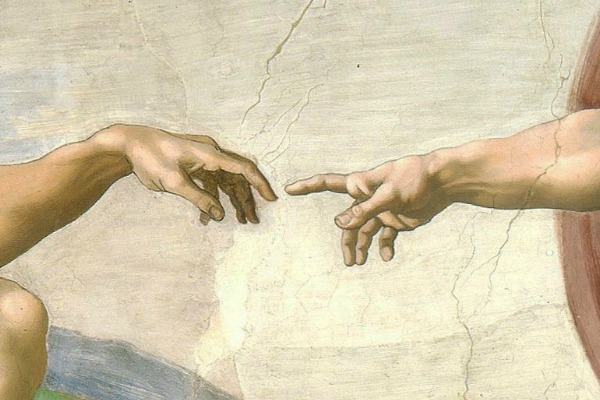
Kenan Çamurcu
In 1996, I coordinated the "Symposium on Dialogue Among Civilizations" organized by the Diyarbakır Metropolitan Municipality. While we were in the hall, someone broke into Graham Fuller's hotel room, who was one of the speakers, and destroyed his computer. The police launched an investigation, but Fuller, during our dinner conversation that evening, smiled and said that nothing would come of the investigation, and that it was a message: "We actually wanted to break your head." As someone experienced and professional in these matters, he undoubtedly knew best. He attributed the reason for such treatment to being perceived as a representative of the political mind in "DC" that was forcing Turkey to undergo a paradigm shift.
That evening, Fuller extensively analyzed that it was not the political power of Islamists but rather Gulen's sociological dominance that was important, and that Gulenism would be the dynamo of change. During the AK Party era, he updated this analysis, adding that Gulenism was the internal dynamic that would keep Erdoğan's power anchored to the Atlantic. Gulenism’s organizational structure, which had seized control of the state, was assigned as a commissioner to Erdoğan.
However, make no mistake, Erdoğan and his supporters were not complaining about this. While Gulenism was tasked with all the risks and heavy lifting of change, the political wing, the AK Party, was merely given the role of steering the ship and appearing on stage. The Gulenists' astonishment during the fierce purge when the wind blew strong and in the opposite direction stemmed from their amateurism, having never gained experience or matured in any real struggle.
The expectation and hope in Western think tanks that Gulenism would produce a unique Turkish Calvinism is a flaw of formulaic thinking. Local liberals were also mistaken. Neither Gulenism, intertwined with the political culture of Islam institutionalized in Muawiyah, starting with the first and second caliphs, as founding fathers of the "New Medina," nor the AK Party's political piety, was capable of a Western-style reformation. They were light-years away from critical thought. They had not the slightest idea about deliberation and renewal. They still don't. Given this, expecting this theo-political culture to break the country's established hard shell and change the paradigm could not even be defined as a fantasy. The structure, supported to take steps towards democratization that would resonate regionally and globally, could not move beyond the provincialism of systematic nepotism, filling even tea-maker positions in official institutions with fully loyal servants. Meanwhile, the political leg was busy playing with the tender law to satisfy their yearning for a prosperous life, instead of structural reforms.
This is a long-standing adventure where funds flowing from Western capitals served no purpose other than financing the vulgar luxurious life that emerged in the sociology of conservative modernism. After the reform card was discarded, the new trend was an attempt to transform and convert irregular migration into a biological weapon and keep the financial highway open. They were never eager or willing to lift a finger on fundamental issues such as democratization, expanding the sphere of rights and freedoms, implementing structural reforms in the economy in favor of the poor and underprivileged, and ensuring the rule of law. On the contrary, they never deviated from their agenda of crushing all individuals and organizations they saw as obstacles to achieving absolute power and establishing religious and political despotism.
Can democracy emerge from the dark and dirty clean-up operations carried out against those who wanted to keep the old Turkey in place with mothballed ideas and ideological dogmas? It didn't. The top echelons of Gulenism have no right to complain. They themselves asked Erdoğan to be a lever for systematically eliminating his rivals through conspiracy. A tyrant who is oppressed does not become a victim; he only becomes an oppressed tyrant.
Gulenism, shaped in the womb of the struggle against communism, follows the same pattern as the "green belt" producing the Taliban in Pakistan in 1979. No matter how much they try to appear modern, their religion, beliefs, and cultural world are typically Talibanist.
Academics writing on Gulenism from various countries have suggested that the movement identifies as a theological sect built under the hegemony of postmodern untruth. It was supposed to be the flag-bearer of an Esperanto of religions, abandoning the historicity of Islam to establish a new, refined historicity, and presenting a national and secular reading of religion where language was not a cultural tool of soft power but a political tool placed at the highest level in the hierarchy of values. This is similar to the Nation of Islam movement's process of change, which not only defined Islam as the religion of black people but also altered known Islamic practices.
Wallace Fard Muhammad, the founder of the Nation of Islam, while adapting Islamic traditions (due to the need for concealment) to the American way of life, was able to change the rules of Islamic jurisprudence through his innovations in theology. For example, the fasting he taught was an act of worship that began after lunch and lasted until lunch the next day. This allowed for the concealment of Islam. Also, according to him, the month of Ramadan was always in December because Christians felt relatively free to fast since their holidays mostly coincided with December. Since its establishment in 1930, the Nation of Islam has defined itself as a nation of "peace and love" or "peace and beauty."
Beliefs framed by concepts such as "tolerance," "love," and "peace," through changes in theology, were to be the seeds sown in the field of a new identity that would replace the traditional principles of Islam. The faith, actions, and worldview that would sprout in this field would, without hesitation, yield different results from those of traditional Islam. It did not happen. And it could not have, because this was a mobilization order far exceeding Gulenism's capacity.
When accusing Gulenism, their insistence on Erdoğan calling them "assassins" might be an ode to Nizam al-Mulk's terror, which drew a sword to annihilate Ismaili enlightenment; their nature is conducive to this. But for a more practical reason, we can assume they launched the campaign due to a phobia related to their ability to infiltrate even the closest circles. In branding the accusation of "assassin" – a label Orientalists affixed to the Alamut community sworn to establish justice – there is hope that the wink to the Western side will be noticed. Otherwise, if an analogy absolutely had to be made, they would have compared them to Opus Dei, which vowed to gouge out the eye of Islam. Their careful avoidance of this analogy is proof of their sensitivity to not anger their financial and political patrons.
The phrase "Gulen will return like Khomeini," vehemently repeated by AK Party spokespersons and coined by secular radicalism in the dark ages of the 90s, was also a crypto-warning to the West. Those who said Gulen would "come like Khomeini" were unaware that they were also saying Erdoğan would "leave like the Shah." Perhaps Westerners focused on the second premise because they no longer wanted to engage with powerful conservatives who had become a source of discord, and thus were not affected by the "Khomeini" scare.
The Gulenists also thought they would motivate the political West by using Iran-mediated accusations when they mobilized all branches of the security sector to purge the government.
Gulenism, which penetrated the political arena in 2005, the same year as Ahmadinejadism in Iran, used the same methods and cadre-building. Ahmadinejadism in Iran, just like Gulenism in Turkey, had moved to deliver the final blow to the country when it was subjected to an operation. In Turkey, it was a twin fusion triggered by the move against Reza Zarrab in 2013.
In the US-Iran-Turkey trio, Gulenist police chiefs struck a blow against Neo-Safavism's Iran operation through the Zarrab case they pursued. In other words, Gulenist police worked for a reformist Iran that was in contact with America. It is ironic, yes, that Americans employed Gulenists, who were morbidly anti-Iran, to prevent the Neo-Safavi coup in Iran. But what is even more ironic is that the Gulenists, at that time, tried to imprison me, who was writing about Neo-Safavism financing Neo-Ottomanism through the Zencani-Zarrab operation. Probably due to a sudden state operation, in a so-called investigation file of over 60 pages, where a sentence was cut short on the last page and filled with my participation in meetings, press statements, etc., they accused me of being part of the Ergenekon, Al-Qaeda, and Selam organizations (all three at once). They included me in physical surveillance, communication wiretapping, ambient listening, etc., of three hypothetical organizations and obtained over 40 judicial decisions from community judges without open identification or Turkish ID numbers. My being made the subject of a cocktail of unrelated organizations was announced at the time in the pro-government propaganda media as the "most bizarre" and "sole" example. Of course, my name was not mentioned to avoid legitimizing a religious opposition figure.
Gulen in the US was a poor copy of the "minor occultation" (the first period of the 12th Imam's disappearance) doctrine in Twelver Shia Islam. Through this, they created Gulen's mythology. However, with his death, Gulenism has ended. Because there is no intellectual legacy behind it that deserves to be an ideology. It was a movement consisting solely of activism that was contingent on his living presence.
The same arrogance seen in Gulenism was present in the statement "God himself cannot sink this ship" when the Titanic set sail. That's why the trauma of its utter destruction was so great.
History can be speculated: If Erdoğan had not employed his sectarian-political symmetricals, namely strategic depth-ism and Gulenism, the evils of the last 15 years would not have occurred. But if he hadn't used them operationally, he would not have reached his current power.
With the death of Gulen, and thus Gulenism, the evil did not end. Because the false piety that produced him and his likes still remains. This is a group whose first act upon waking up in the morning is to plan evil, and whose last act before going to bed at night is to calculate the balance sheet of that evil.
Translated by Gemini





0 Comments